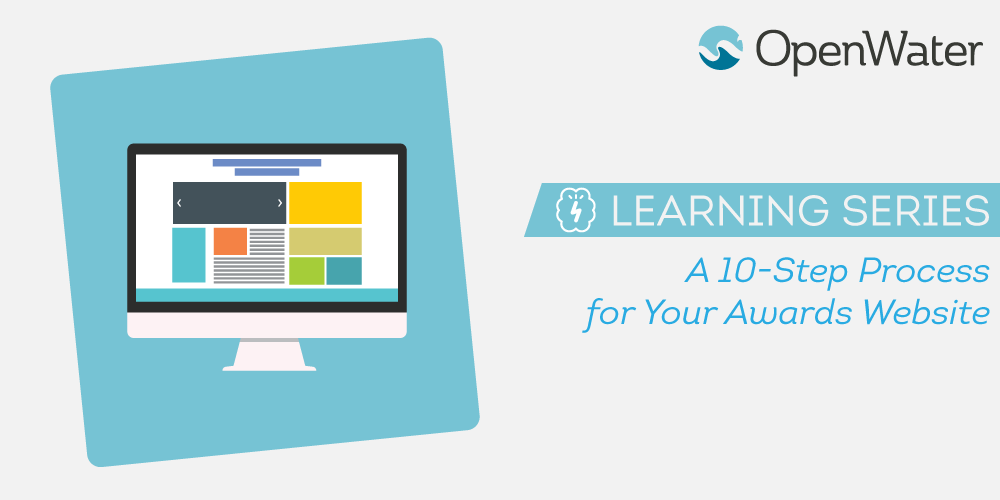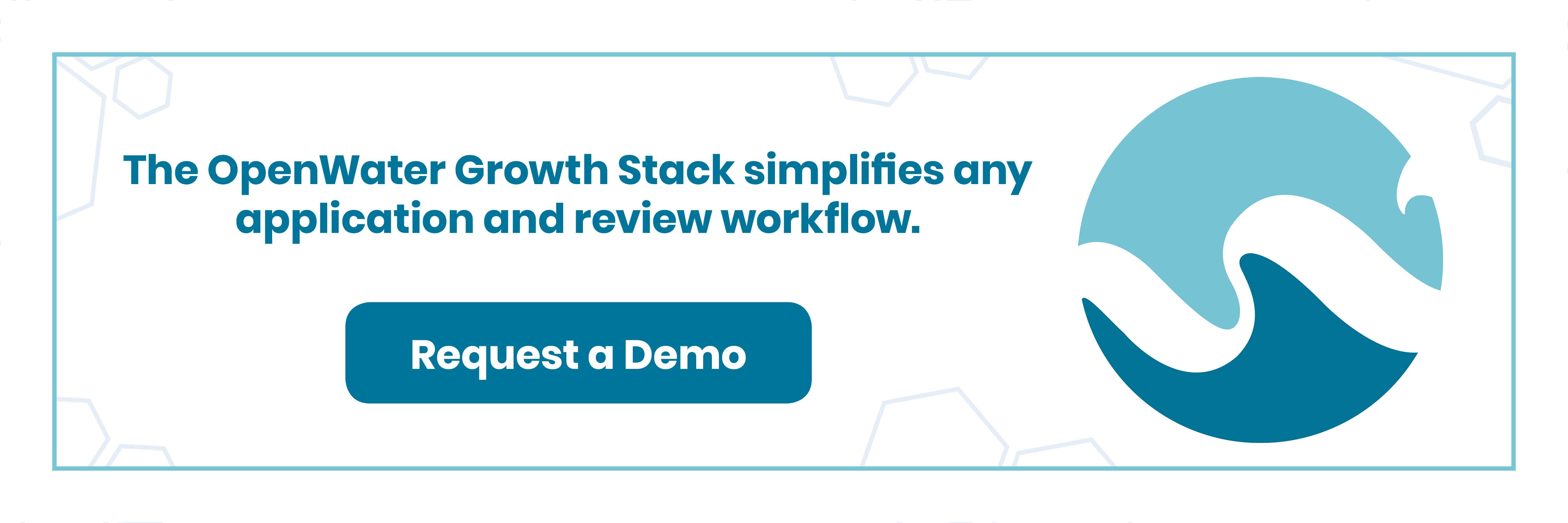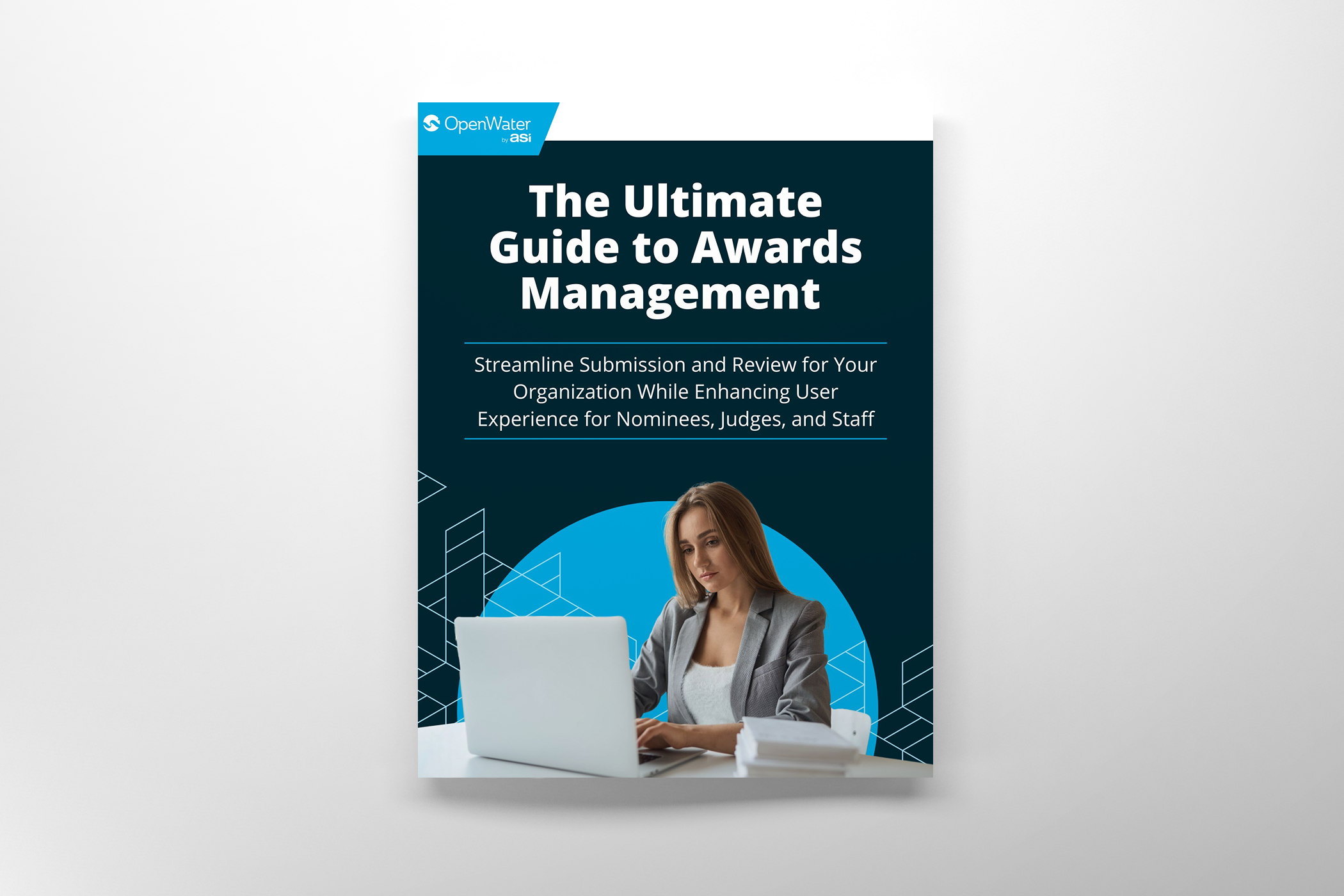
Learning Series: 10-Step Process for Awards Websites
Your awards website is the one-stop shop visitors can turn to to learn about, enter, and otherwise engage with your program. And, when you want to launch your program on the right foot, you’ll have a website built and ready to go.
But, is your website actually ready for launch? Or, are you missing key information?
It’s too easy to miss out on key information when you’re putting together your website and are “in the weeds” of development. In this article, we detail the ten key considerations or pieces of information you should have on your website to ensure you didn’t miss anything important.
1. Location of Your Website
Finding a proper location for your website comes before any other consideration, design, or front-end development. Your most significant decision will be whether you’ll create a site separate from your organization’s site or create a micro-site within your awards website.
Regardless of which option you choose, you’ll need to ensure brand consistency in design and feel.
2. Branding
Creating an awards website similar to the look and feel of your organization’s website fosters trust with your audience and makes it easier for individuals to identify that the program is part of your organization. Relatedly, having an awards website that is similar to your organization’s site reinforces your marketing because both work to promote the other.
3. Overview Page
An overview page may seem like an obvious addition to your website, but it’s important to reiterate because it’s that important.
Your overview should contain basic information like:
- What your program is – This includes a brief explanation of your program, the categories, and other general information that piques interest in the program.
- The history of the program – A brief summary of your program’s history, along with a link to your program archives, can help interested applicants learn more about your program.
- The importance of entering – Entrants will consider many programs and ask “What’s in it for me?” Answer this by emphasizing the prestige of your program, the award being offered, the experience to be had, or other valuable benefits you know your target audience will find appealing.
4. Call for Entry Page
This is going to be one of the most heavily-trafficked pages on your website. As such, it’s best to spend the majority of your time gathering the most important information and laying out the page accordingly.
Because you’re going to have a lot of important information on this page, it’s vital that you leave enough white space to draw the eye accordingly. This will help highlight key details like:
- Dates
- Program categories
- Eligibility requirements
- Fees
- How to enter
- A link to the submission tool
- Sample application
- Contact information
5. Archive of Previous Winners
Creating an archive of previous winners gives your organization recognizable faces both returning and new applicants can relate to. More importantly, an archive adds legitimacy by building a visual representation of your program’s history, how long it has run, and how popular it is each year.
You can make your archive as simple or as complex as you’d like. For example, you could create a gallery or you could create a mini-presentation of each year’s program to offer more information to potential entrants.
6. Judging
Judges add prestige and legitimacy to your program.
The judging page should highlight this prestige and legitimacy by detailing:
- Who judges are, and
- What criteria judges will use to score entries
7. Official Rules
While some entrants may never check this page in detail, it’s important to include for legal reasons and for the benefit of applicants who understand the need to check these rules.
This page should be easily accessible and should link back to the rules on your call for entry page as well.
8. FAQ
FAQ pages are highly recommended, though not entirely required. Including one will eliminate a lot of questions that you will receive throughout the course of your program and save you a lot of time and hassle in the process.
Try to look at your site as someone who has never seen it before and is unfamiliar with your program. This will help you better anticipate the questions you might receive.
9. Link to the Awards Gala
Your awards gala is the culmination of your entire program. And, even if your gala is not entirely planned, offering a small sample of what’s to come gives your applicants a sign of something to look forward to.
10. Contact Page
There is no such thing as having too much contact information on your website. Entrants don’t want to go hunting for the information and for that reason, you should keep it in the header at the top of each page or put it somewhere else that is prominent enough to draw attention.
What’s on Your Website?
Your website is a critical component of your awards program. By using the above pages and considerations as a checklist, you can be sure that yours has everything your applicants need prior to the launch of your program.
Want to see a proper awards program website in action? Find one here!


